
Daniel Linehan
Zombie Aporia
London, Lilian Baylis Studio
9 May 2012
dlinehan.wordpress.com
At a superficial level there is no sense to this rather intriguing title, which juxtaposes a horror movie description of the living dead with an Ancient Greek term, meaning something like a philosophical puzzle; or, when used rhetorically, it might denote an inclination to doubt. According to search engines, the World Wide Web had never experienced this specific linguistic partnership before Mr Linehan came along. It was, as they say, a “Googlewhack”. But, dig a bit deeper and something tangible emerges from the fog. Not just through the apparent alienation of the two words but more specifically in relation to one of the ancient meanings of ‘Aporia’, which is to contradict something that might otherwise appear to be logical.
The first of these contradictions lay in the school-age appearance of the three performers. Wearing clothes that a young boy might have sported in a 1950s gym class (all very Secret Seven in grey shorts and white, buttoned shirt), Thibault Lac opened the show by announcing, very formally, what was to come next. Each of the ensuing eight episodes was an exploration of this business of doubting what your eyes see.
The most potent and intriguing example came in the second piece where Linehan appears to be wearing a camera on his forehead with what he is seeing being beamed in real time to a screen above the stage. And, yet, look more closely and there is no camera; when the performer observes the audience, it’s the same studio with the lights down but the seats are empty. His meticulous co-ordination of this precision timing is the more remarkable given that Linehan is reciting a significant passage of text while moving. The opening lines of “this is only live, this is really live, this cannot be live, it happens to be live” describes the aporetic conundrum unravelling before our eyes.
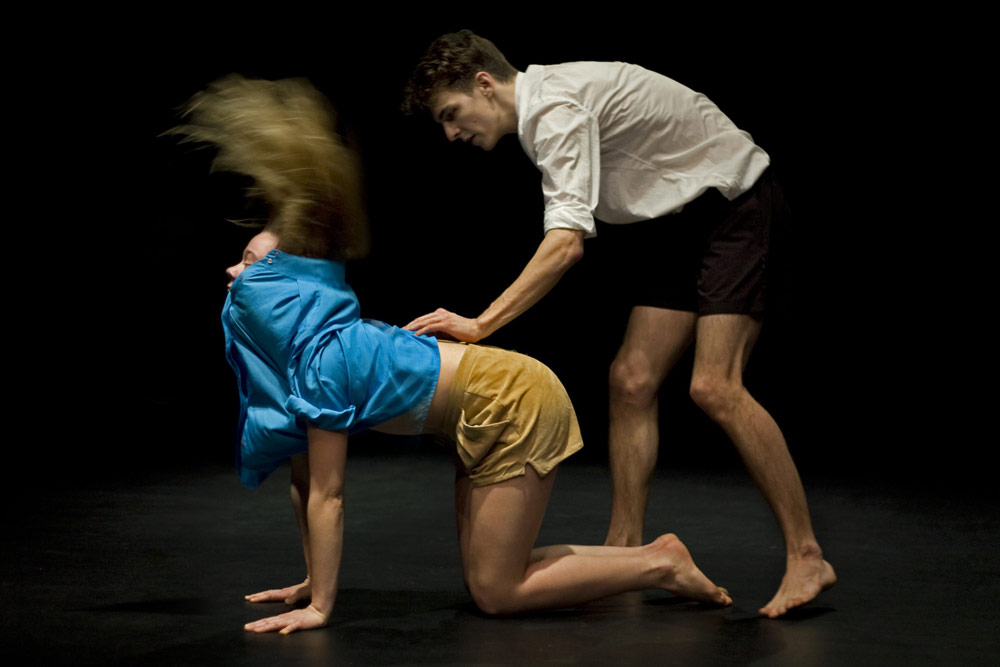
In the following exercise, Salka Ardal Rosengren sings a version of the Sex Pistols’ ‘Anarchy in the UK’ but with very altered lyrics (for example, “I wanna be anarchy” becomes “I wanna be cool”, which might sum up the difference between teenagers in the mid-70s and now). In yet another contradiction, she sings with a strong low range that seems way too mature for her apparent youth, while being prodded, squashed and throttled by Lac; all the while, remaining in key, though with added vibrato, and unfazed by these physical assaults.
Each exercise manipulates the performers’ movement and positioning against the timing of spoken or sung text. In ‘Singalong’ each of the three is represented on the screen by a coloured symbol and they moved around the stage and into the audience in a symbiotic relationship with their specific onscreen dot or triangle, speaking their text at the precise moment that it disappears from the screen. In the final episode, they each wore a jacket with frills (leather fringes for Lac, feathery wool for Rosengren and moulting silver tassels for Linehan) as they shook and head-banged violently.
This conclusion was an example of the occasional exercise that seemed to detach the action from the aporetic point of the enquiry but I remained wholly absorbed by this serious and complex attempt to demonstrate the contradictions in performing dance theatre. In creating circumstances that set voice and movement, physical manipulation and song, dance and space or performers and audience against one another, this trio succeed in deconstructing the mechanics of dance theatre into a puzzle that unravels – often surprisingly – into both creative friction and harmony. If this were a danced game of “Call My Bluff” then Linehan provides a 45-minute description of the word ‘Aporia’. But, if anyone turned up expecting to see zombies, they would have been very disappointed.

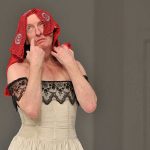




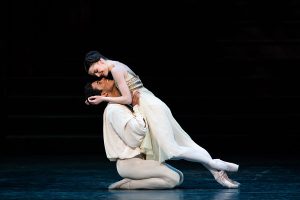
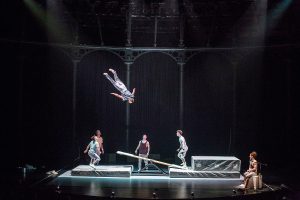
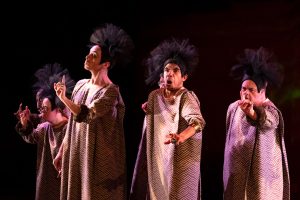


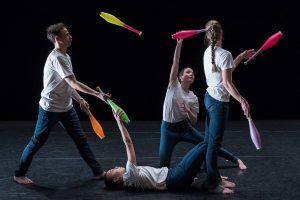
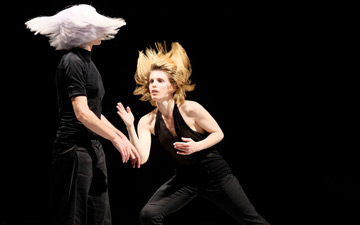
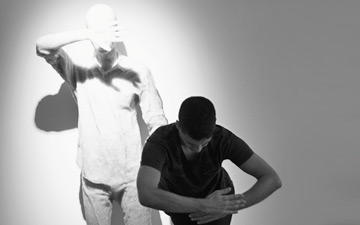

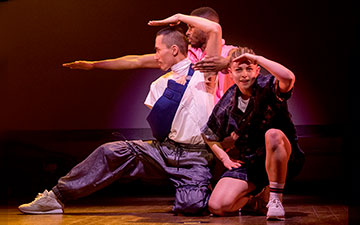
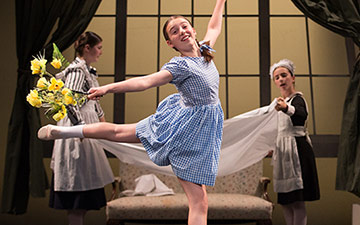
You must be logged in to post a comment.